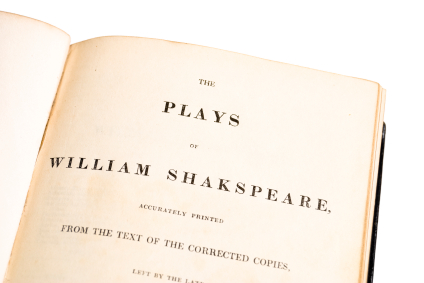
I have always tried to introduce authentic and graded literature in my classes with various degrees of success. Over the years, and with the belief that reading for pleasure is quite different from required reading, I have tried to lessen the negative effects of required reading.
Some strategies that have worked for me
Finding the right book or poem
This seems obvious but is an essential aspect of the process. I sometimes choose the reading myself, taking into account my students’ age and preferences. Some other times I present them with a few options and they can vote which they want to read. Poetry is often seem as boring, but I believe this appreciation is related to the kind of poetry we present to our students. The poetry of Benjamin Zephaniah or Tim Burton are only two examples of a more accessible or different kind of poetry.
- Wicked World by Benjamin Zephaniah is a collection of poems on very interesting topics. You can also find videos of Benjamin Zephaniah himself reciting the poems.
- The Melancholy Death of Oyster Boy and other stories by Tim Burton is a fantastic collection of poems aligned with the film director’s wacky style. There are also videos extending the stories in his poems.
Making sure the language level is accessible
A lower level might prove boring and a higher level will make it an unnecessary challenge. In this respect, nobody knows your learners better than yourself, so you will have to make this decision carefully.
Trying not to choke the pleasure of reading with excessive language work: doing endless language exercises and comprehension questionnaires about the book you are reading can definitely make the reading tedious.
Allowing for a choice of reading response
Giving students a list of options for after reading projects is an effective way of allowing students some freedom to choose what they like best and to explore different aspects of the text. Students can then feel freer to explore their creative talents. One such list of options for A Midsummer Night’s Dream is this:
A Midsummer Night’s Dream
Reading Responses
Get into groups and choose what you want to work on from this list
- Act out a scene: Choose a scene (or portion) to present to the class. You may choose to rewrite your scenes or present them as they are.
- Create a puppet show of a scene
- Analyze Shakespeare´s language use in the original play
- Compare the three versions: prose, cartoon, play
- 60 second Shakespeare: create a 60-second video, slideshow, animation, rap or poem about the play
- Analyze Shakespeare´s time at the time of this play
- Character Diaries: Choose a character and write a journal/diary from his/her point of view retelling all the events he/she experienced.
- A set of comprehension activities (worksheets)
- Create a stage setting and costume design for the play
- Create a diagram of flow chart of the four pairs of lovers – Theseus/Hippolyta, Oberon/Titania, Lysander/Hermia, and Demetrius/Helena – and explain how it changes throughout the play to the final pairings.
- Which of the four women is more like a modern-day woman? In what ways is each of them modern?
- Character analysis: choose one character and analyze it
- Write Agony Aunt letters from: Hermia, Helena and Egeus.
- Write or perform an interview with a character
- Conflict resolution: Hermia’s father wants her to marry Demetrius. But she loves Lysander, and Lysander loves her. According to ancient laws without her father’s approval, she can’t marry him!!
• What would happen nowadays in the same situation?
• Why do young people in love sometimes experience conflict with their parents?
• What is the best way to resolve a conflict?
If you have another idea, tell the teacher to see if it´s possible
All in all, allowing students to enjoy what they are reading both because of the title selection and the work to be done has been a booster in my students’ reaction to literature. I hope you can find ways to make it work for you!